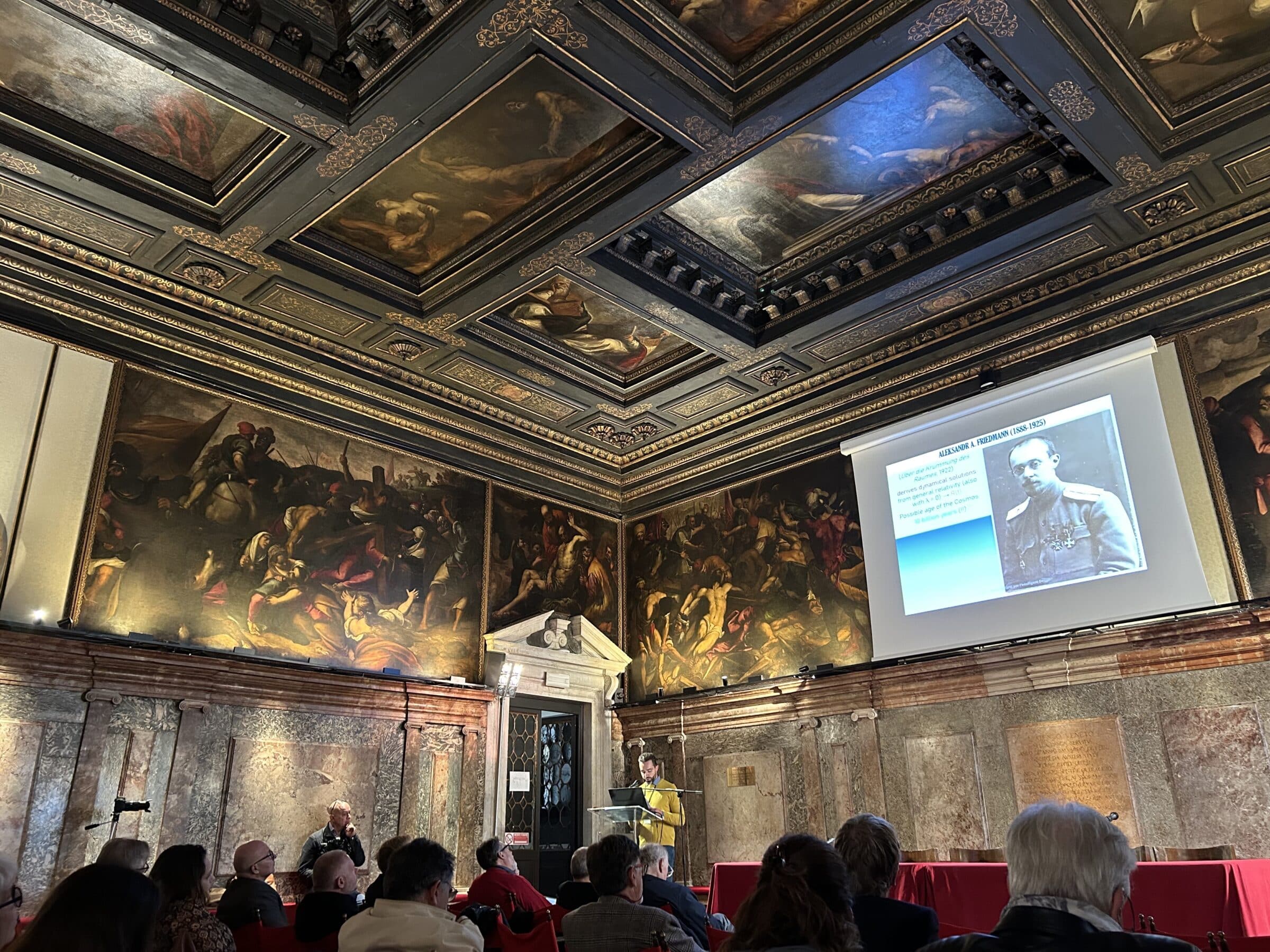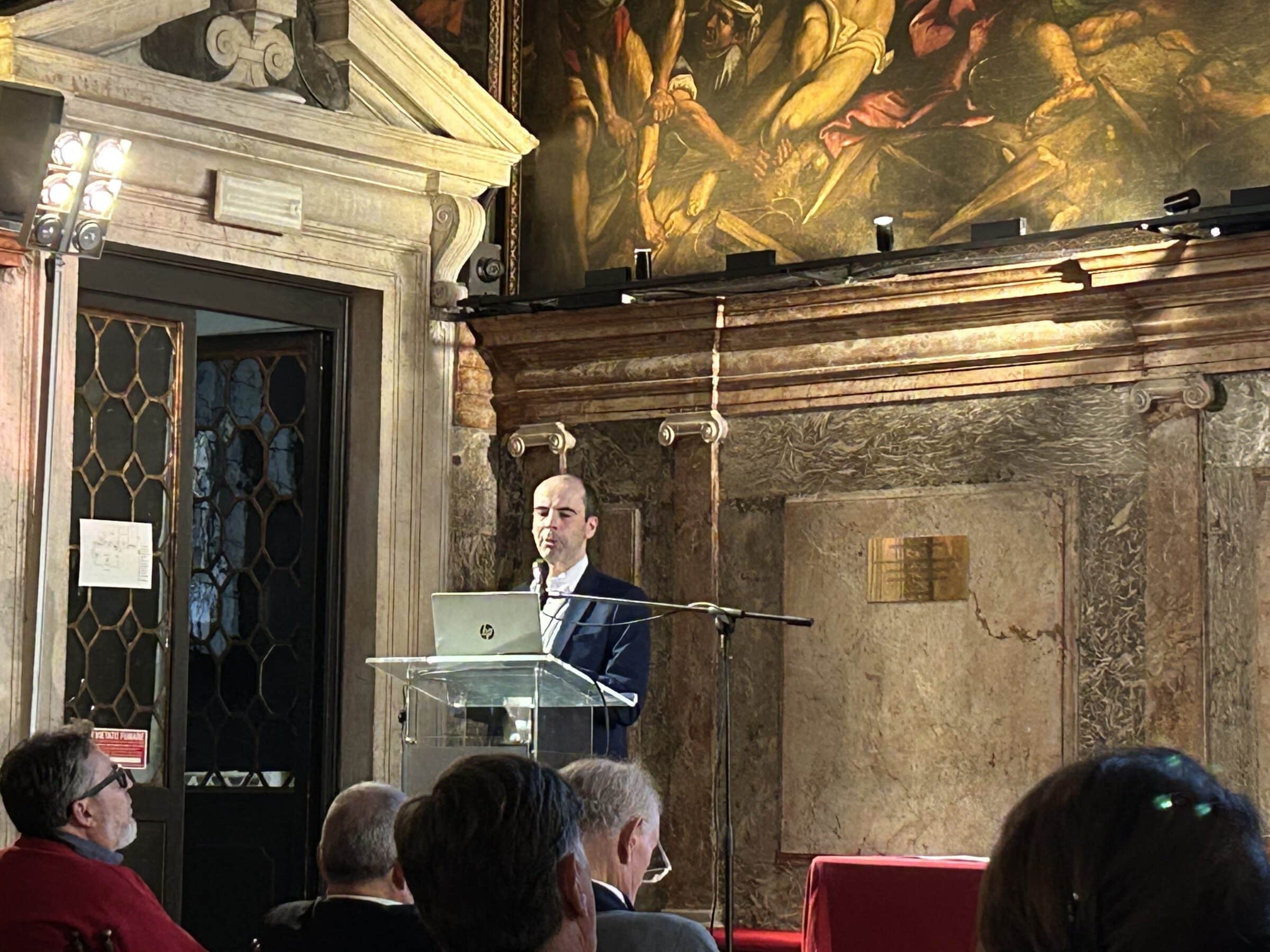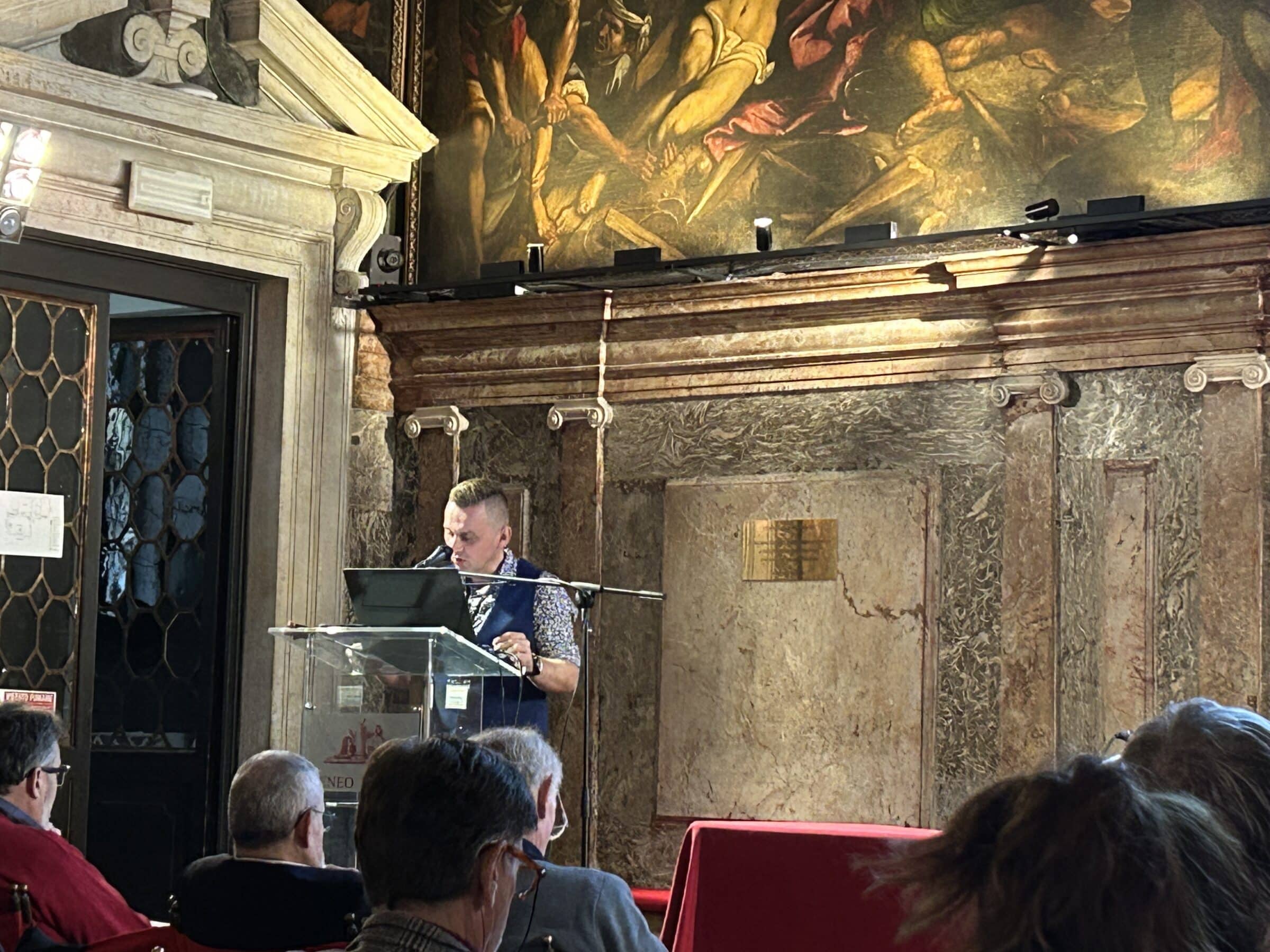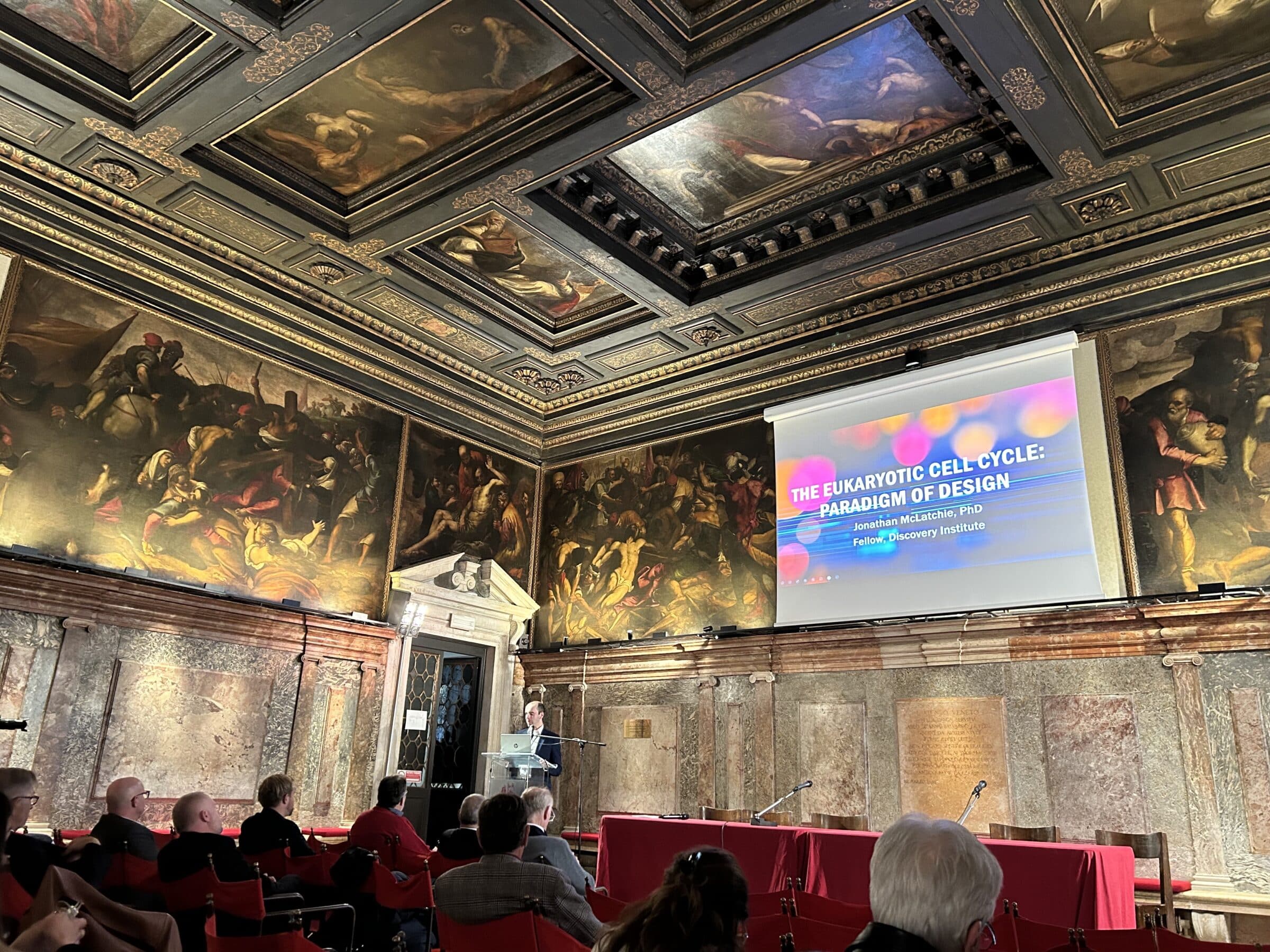Earlier this month, scientists and scholars from Europe and the United States gathered in Venice, Italy, for the second “Cosmos, Life, Intelligence, Information” conference. This year’s event was held on October 4, the 100th birthday of prominent Italian biologist Dr. Giuseppe Sermonti, a pioneering critic of Darwinism of the past century. The theme of the conference was “Dissent and Progress in Science from Sermonti to Bechly.”
The event honored the legacies of Sermonti and the late German paleontologist Günter Bechly, a Discovery Institute Senior Fellow who courageously embraced intelligent design in the latter years of his life at great personal cost. He had to leave his job as a curator at a natural history museum in Germany after his anti-Darwin views became known. Bechly died unexpectedly at the beginning of 2025. Members of Dr. Sermonti’s family and the widow of Dr. Bechly were on hand and offered moving personal tributes to the two scientists.
The venue for the meeting was the historic Ateneo Veneto, an esteemed intellectual society in Venice that has served as a forum for debates on science, culture, medicine, politics, and more for over two centuries.
Big Bang, Origin of Life, and More
The all-day event featured speakers from Italy, Poland, Norway, and the United States, and it was organized by the Italian intelligent design society and co-sponsored by intelligent design groups in Poland, Norway, Spain, the United Kingdom, and the United States.
 Photo credit: John West.
Photo credit: John West.Italian historian of cosmology Mauro Stenico discussed the history of big bang cosmology and its anti-materialist implications. Italian engineer Vittorio Cocchi examined the hurdles that had to be overcome to move from inanimate matter to life. Norwegian researcher Øyvind Voie explored the semantic nature of chemical and biological information. Polish biologist Artur Świergiel discussed how “distinct morphological, anatomical, physiological, and even genetic differences, stable over very long periods of time and countless generations, do not necessarily lead to the emergence of new species.” Polish philosopher of science Grzegorz Malec discussed how intelligent design functioned as “the monster in the closet” for many of its critics. And Discovery Institute biologist Jonathan McLatchie unraveled the intricacies of the eukaryotic cell cycle as a paradigm of intelligent design.
 Photo credit: John West.
Photo credit: John West.For me, one of the highlights was a poignant talk by Italian biologist Umberto Fasol, who recounted how a seminal book challenging Darwinism by Sermonti and an Italian paleontologist had changed his life:
When this book entered my home, I remember my father saying to everyone, “Today is a good day to wake up because a new era begins. The nightmare is over!” We devoured the book and discussed it passionately. We were excited that two university professors had finally put in writing that real life — as we know it from studying anatomy, physiology, and biochemistry — disproves branching evolution, a theory based on fantasy.
In my own talk, I recalled how I was privileged to meet Giuseppe Sermonti in person twenty years ago this past May.
 Photo credit: John West.
Photo credit: John West.“The ‘Politically Correct’ of Science”
Dr. Sermonti had come to Discovery Institute in Seattle with his wife for the debut of the English language edition of his book Dimenticare Darwin (“Forget Darwin”). The English language title of the book was Why Is a Fly Not a Horse? The English translation was carefully edited by biologist Jonathan Wells. Since I am not a biologist, I had nothing to do with the editing. But I am pleased to say that I was the one who initiated the idea of Discovery Institute Press publishing the book.
Dr. Sermonti holds a special place in my heart because of something he wrote in one of his articles. It was so perceptive, that once I read it, I started to quote it again and again in my own writings. Here is what he said: “Darwinism… is the ‘politically correct’ of science.”
When I read that sentence, I thought Sermonti was exactly right. Darwinism has functioned as an ideological orthodoxy, and it has preserved its power not by evidence or persuasion but largely by bullying others and immunizing itself from critical scrutiny.
Freedom from Superstition
Dr. Sermonti was a prophet of a future when science would be freed from the neo-Darwinist superstition. In his book Why Is a Fly Not a Horse?, he lamented:
The end result of such a utilitarian outlook [as supplied by Darwinism] is that intrinsic order and beauty, untrammeled by practical considerations, are completely obscured. All the charm and grace of life, with its torrents of happiness and its unexpected wonders, all the harmony that pervades the created world, have been ruled out by positivistic science because positivistic science uses a different lexicon.
Dr. Sermonti hoped for a new day in science where the intrinsic order and beauty of nature would be embraced rather than dismissed.
As I told those gathered in Venice, I think that day is finally dawning. I spoke of how the debate over intelligent design is becoming increasingly mainstream as scientists grapple with the arguments made by intelligent design proponents. Minds are being opened. Hearts are being changed. It’s great time to complete the work of Sermonti and Bechly by replacing Darwinism with something better.








































